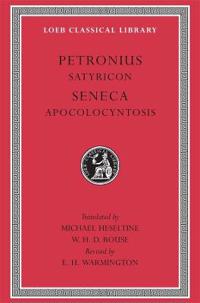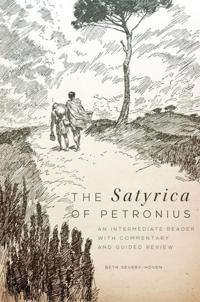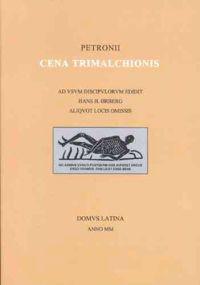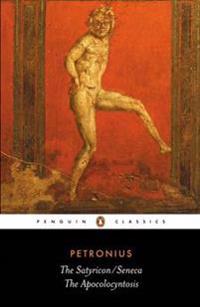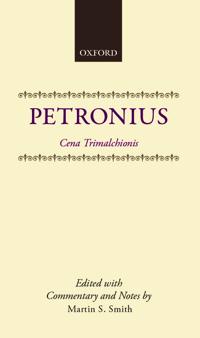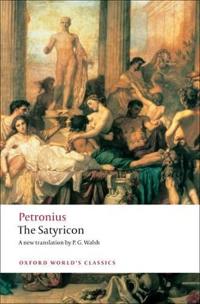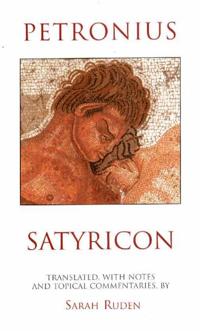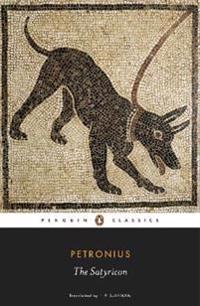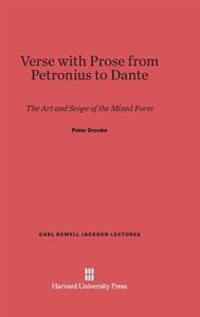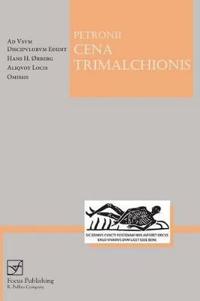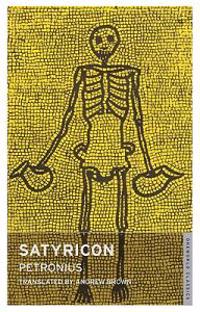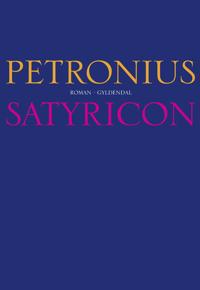Petronius (Inbunden)
avPetronius Arbiter, Seneca. Apocolocyntosis
ISBN: 9780674990166 - UTGIVEN: 1936-12Petronius (C. or T. Petronius Arbiter), who is reasonably identified with the author of this famous satyric and satiric novel, was a man of pleasure and of good literary taste who flourished in the times of Claudius (41-54 CE) and Nero (54-68). As Tacitus describes him, he used to sleep by day, and [...]
The Satyrica of Petronius: An Intermediate Reader with Commentary and Guided Review (Häftad)
avPetronius, Beth Severy-Hoven
ISBN: 9780806144382 - UTGIVEN: 2014-06A comic masterpiece of classical antiquity, the "Satyrica" (or "Satyricon") of Petronius is a tantalizing work of fiction--part poetry, part prose, hilariously vulgar, exquisitely elegant, its original form and length as much a matter of speculation as the identity of its author. Its brilliance and [...]
Satyricon Reliquiae (Häftad)
avPetronius Arbiter, Petronius Arbiter, Petronius, Konrad Muller
ISBN: 9783598712579 - UTGIVEN: 2004-01The Satyricon; The Apocolocyntosis of the Divine Claudius (Häftad)
avPetronius Arbiter, Lucius Annaeus Seneca, Petronius
ISBN: 9780140444896 - UTGIVEN: 198612The Satyricon is a classic of comedy, a superbly funny picture of Nero's Rome as seen through the eyes of Petronius, its most amorous and elegant courtier. William Arrowsmith's translation - a lovely, modern, unexpurgated text - recatpures all the ribald humor of Petronius's picaresque satire. It [...]
The Satyricon (Pocket)
avPetronius, P. G. Walsh, Petronius
ISBN: 9780199539215 - UTGIVEN: 200905'The language is refined, the smile not grave, My honest tongue recounts how men behave.' The Satyricon is the most celebrated work of fiction to have survived from the ancient world. It can be described as the first realistic novel, the father of the picaresque genre, and recounts the sleazy progr[...]
Satyricon (Pocket)
avPetronius Arbiter, Sarah Ruden, Petronius Arbiter
ISBN: 9780872205109 - UTGIVEN: 200003This new Satyricon features not only a lively, new, annotated translation of the text, but also fresh, and accessible commentaries that discuss Petronius' masterpiece in terms of such topics as the identity of Petronius, the transmission of his manuscript, literary influences on the Satyricon, and t[...]
The Satyricon (Storpocket)
avPetronius Arbiter
ISBN: 9780140448054 - UTGIVEN: 201110"The Satyricon" is one of the most outrageous and strikingly modern works to have survived from the ancient world. Most likely written by an advisor of Nero, it recounts the adventures of Encolpius and his companions as they travel around Italy, encountering courtesans, priestesses, con men, brothel[...]
Hidden Author, The: An Interpretation of Petronius's "Satyricon" (Övrig)
avGian Biagio Conte
ISBN: 9780520207158 - UTGIVEN: 1997-02-25"The Satyricon of Petronius", a comic novel written in the first century A.D., is famous today primarily for its amazing banquet tale, "Trimalchio's Feast." But this episode is only one part of the larger picture of life during Nero's rule presented in the work. In this accessible discussion of Petr[...]
Verse with Prose from Petronius to Dante: The Art and Scope of the Mixed Form
ISBN: 9780674330474 - UTGIVEN: 2013-10Petronius: A Handbook (Häftad)
avJonathan R. W. Prag, Ian D. Repath
ISBN: 9781118451373 - UTGIVEN: 2012-12-31This volume presents a dozen original essays by leading scholars in the fields of the ancient novel, Julio-Claudian culture, and early Roman imperial history, focused on Petronius' fragmentary work The Satyricon. The essays move from literary studies to cultural studies to historical studies.[...]
Petronius: A Handbook (Inbunden)
avEditor:Jonathan R.W.Prag, Editor:Ian D. Repath
ISBN: 9781405156875 - UTGIVEN: 2009-01-31The Satyricon: English - Latin Parallel Text (Häftad)
avPetronius
ISBN: 9781453863381 - UTGIVEN: 2010-11The Satyricon of Petronius Arbiter: The Book of Satyrlike Adventures (häftad)
ISBN: 9781517136338 - UTGIVEN: 2015-08Satyricon (Häftad)
avPetronius Arbiter
ISBN: 9781847491169 - UTGIVEN: 200911Documenting the colourful escapades of the former gladiator Encolpius and his less than faithful lover Giton, the "Satyricon" plunges the reader into the lives of ordinary Roman citizens, vividly revealing the Empire's seamy underbelly. A host of unforgettable characters are satirically presented, s[...]
Satyricon (Häftad)
avPetronius Arbiter
ISBN: 9788702072907 - UTGIVEN: 2009Titlen Satyricon er afledt af det græske ord for satyr og opbygger således en forventning om uregerlig kønsdrift. Men den hentyder også til det romerske ord satura ´satire´. Satiren i Satyricon blomstrer bl.a. i afsnittet om ´Trimalchios Middag´ om den nyriges snobberi, blodt[...]
Petronius (Häftad)
avHugh Sykes Davies
ISBN: 9789197656832 - UTGIVEN: 2008-08-15I ett landskap som kryllar av liv och svämmar över av oväntade händelser travar Petronius fram. En dåre stiger upp ur en nertrampad svamp, en rasande make förföljs av sin mördade frushämndlystna tarmar och ett par jättar skvallrar högljutt i klipporna. Petronius skådar mycket, menfortsä[...]

